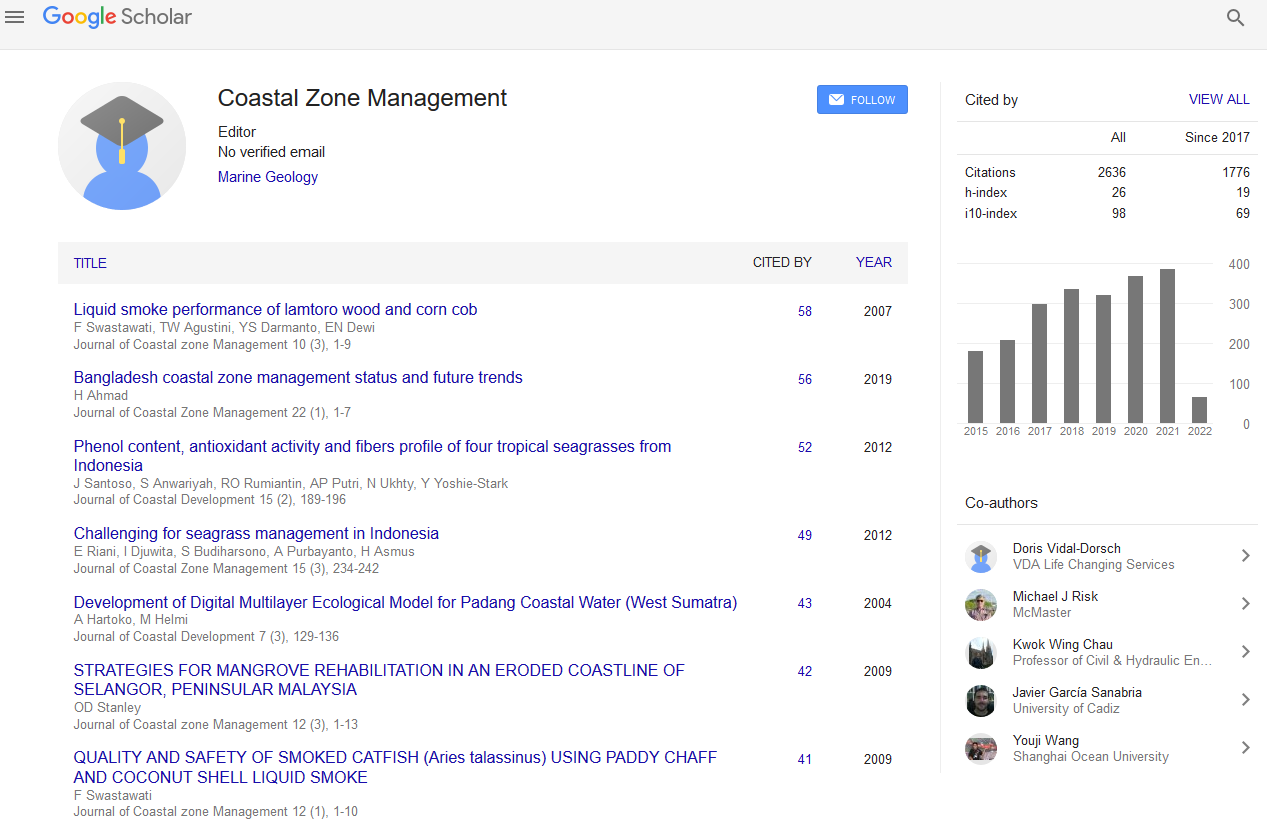Indexed In
- SafetyLit
- RefSeek
- Hamdard University
- EBSCO A-Z
- OCLC- WorldCat
- Publons
Useful Links
Share This Page
Journal Flyer

Open Access Journals
- Agri and Aquaculture
- Biochemistry
- Bioinformatics & Systems Biology
- Business & Management
- Chemistry
- Clinical Sciences
- Engineering
- Food & Nutrition
- General Science
- Genetics & Molecular Biology
- Immunology & Microbiology
- Medical Sciences
- Neuroscience & Psychology
- Nursing & Health Care
- Pharmaceutical Sciences
Abstract
Factors Affecting the Biodiversity and Human Well-being of an Ecologically Sensitive Wetland of North Eastern Bangladesh
Atiqur Rahman Sunny*, Rashed Alam, Masuma Akter Sadia, Md. Yusuf Miah, Md. Sabbir Hossain, Md. Jahid Hossain, Mst. Sobnom Binta Mofiz, Sharif Ahmed Sazzad, Md Ashrafuzzaman and Shamsul H. Prodhan
Wetland ecosystem of Bangladesh has great importance for the country’s economic, industrial, ecological, socioeconomic, and cultural aspects. Wetlands of north eastern region are very prominent for freshwater capture fisheries but a few studies focused on comprehensive assessment of biodiversity, conservation necessities, affecting drivers and its impact on natural wetland and dependent community. The present study has been conducted to identify the present status of fish diversity assemblage, dominance index, evenness and distribution of the species, conservation requirements, natural and anthropogenic factors affecting the biodiversity and human well-being of Dekhar Haor by employing qualitative and quantitative methods in two fishing communities. It was noticed that there were 69 fish species under 8 orders where 39 species were not threatened, 11 species were endangered, 10 species were vulnerable, 8 species were critically endangered and 1 species were near to threatened. Cypriniformes (55%) was the most dominant order, followed by Siluriformes (16%), Perciformes (10%), Channiformes (7%), Synbranchiformes (4%), Clupeiformes (3%), Beloniformes (3%) and the rest (2%) belonged to Tetraodontiformes. The present study identified the causes of biodiversity depletion and suggested management measures including establishment of the sanctuary, community-based fisheries management, use of legal fishing gears, proper implementation of fishing laws and regulation. Therefore, the findings of this study could be utilized to plan and execute appropriate natural wetland management strategies.
Published Date: 2020-03-13; Received Date: 2019-12-12

